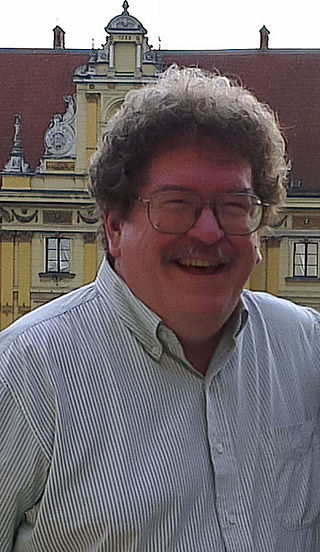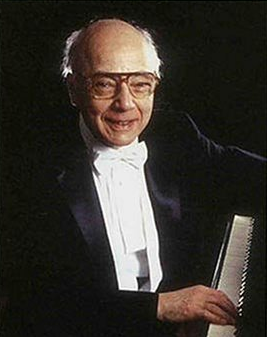
William Howard Schuman was an American composer and arts administrator.

Serge Koussevitzky was a Russian and American conductor, composer, and double-bassist, known for his long tenure as music director of the Boston Symphony Orchestra from 1924 to 1949.

Eric Ewazen is an American composer and teacher.
The International Society of Bassists (ISB) is a 501(C)(3) not-for-profit organization for anybody who enjoys the double bass. The society was founded in 1967 by Gary Karr as the International Institute for String Bass (IISB). After a two-year hiatus of the IISB, the International Society of Bassists was launched with Barry Green as executive director, and the society maintains that name today. The president of the Society from 1982-1991 was Jeff Bradetich. The current president is Douglas Mapp, double bass professor at Rowan University, and the General Manager is Madeline Crouch of Don Dillon Associates. The society has about 3,000 members in about 40 countries and is steered by an international board of directors.
Homer Mensch was a prominent classical bassist who was a former member of the Pittsburgh Symphony, the New York Philharmonic, the New York Pops, and the NBC Symphony. Mensch held faculty positions at Yale University, at the Manhattan School of Music, the Juilliard School, the Mannes College of Music, Rutgers University, Dalcroze School, Queens College, and Catholic University. He taught upwards of 45 students a week from beginners, to conservatory students, to professionals both in the classical and jazz fields.

The Karr-Kousevitzky bass or Amati bass is a famous double bass previously belonging to Serge Koussevitzky and Gary Karr. Now generally referred to as the Karr-Koussevitzky rather than the Amati; until recently, the bass had been attributed to the Amati brothers, but now it is generally believed to have its origins in France. It is renowned for its tonal quality in solo music but is considered to be difficult to play.

Jian Wang is a Chinese cellist. A soloist, chamber musician, recording artist and teacher, he was the first Chinese musician to ever sign an exclusive contract with Deutsche Grammophon.

Dennis Trembly is Professor of string bass at the University of Southern California. He is also one of two principal bassists for the Los Angeles Philharmonic.
Stuart Sankey was a pedagogue of the double bass. His students included Gary Karr, the first bass player of the modern era to make a career as a solo artist, and Edgar Meyer. He taught for nearly 50 years at the Aspen Music School. He also held teaching positions at the University of Texas, Indiana University, and the University of Michigan. He made a large number of transcriptions for the double bass, increasing the literature for the instrument. Sankey was born in Los Angeles, Calif., in 1927. He attended the University of Southern California, Los Angeles, and the Juilliard School of Music. His teachers included Frederick Zimmermann, Jean Morel and Henry Brant.

Elyakum Shapirra was an Israeli conductor who appeared in a number of countries.
Leonard Shure was an American concert pianist. He began his career as a performer at the age of 5 and as a teenager studied privately with Artur Schnabel in Germany.

Svante Henryson is a composer, cellist, bass guitarist and double bassist, active within jazz, classical music, and hard rock.
Mark Morton is an American classical musician and academic working as Professor of Double Bass at Texas Tech University, Principal Double Bassist of the Lubbock Symphony Orchestra, Abilene Philharmonic Orchestra, and the West Texas Symphony, and the artistic director of the American School of Double Bass.
Gunars Upatnieks is a Latvian double-bass player and member of the Berlin Philharmonic.
The Concerto for Piano and Orchestra is a musical composition by the American composer Aaron Copland. The work was commissioned by the conductor Serge Koussevitzky who was then music director of the Boston Symphony Orchestra. It was first performed on January 28, 1927, by the Boston Symphony Orchestra conducted by Koussevitzky with the composer himself as the soloist. The piece is dedicated to Copland's patron Alma Morgenthau Wertheim.
Shinji Takane Eshima is a Japanese-American musician, composer, and teacher.
Rinat Ibragimov was a virtuoso Russian-Tatar classical double bassist, best known as the principal bass of the London Symphony Orchestra and for his solo performances and recordings.

Seymour Lipkin was an American concert pianist, conductor, and educator.

Koussevitzky Double Bass Concerto Op. 3 in F♯ Minor is a three movement work composed in 1902 for the double bass.









